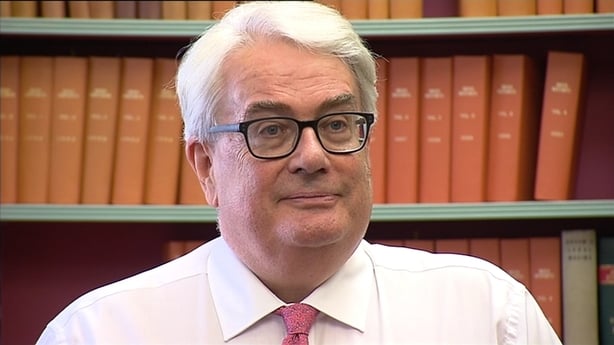The Supreme Court will declare the ban preventing asylum seekers from working here unconstitutional in February.
The five-judge court told lawyers for the State that it would make the declaration on 9 February, regardless of the progress the State has made in addressing the court's findings on the ban.
The court found the ban to be unconstitutional "in principle" last May.
But it deferred making the declaration for six months to allow the legislature to deal with the issue.
When the case returned to court today, the State asked the court for a further postponement until March.
Lawyers for the State said the matter was complex with many issues requiring to be addressed.
The court heard that the State was in the process of opting into the EC reception directive, which contains a provision requiring member states to allow the right to work in certain circumstances.
Lawyers for the Rohingya man, who brought the successful challenge to the ban, said they would prefer the court to go ahead with the declaration today, but said the issue was for the court to decide.
Chief Justice Mr Justice Frank Clarke said the court last May, had "exceptionally" not taken the normal course of immediately declaring the provisions to be unconstitutional rendering them inoperative.
He said the court recognised there were choices to be made as to how the difficulty was to be addressed.
Mr Justice Clarke said the whole point of giving the State a time period was to allow the legislature make decisions and the court had no role in those.

The essential issue now, he said, was to decide what is appropriate for the court to do when the State has said a decision on how to address the matter has been made and plans are afoot to take the necessary measures so Ireland will opt into the Reception Directive.
He said the balance of justice would be met by giving the State a relatively brief period to take whatever measures the State considers necessary.
He said there would be no further hearing and the court's intention was to make a formal declaration of unconstitutionality on 9 February.
The Rohingya man, who took the case, is in his 30s and spent eight years in direct provision before getting refugee status here last year.
He was offered work in his direct provision centre in 2013, but he could not take that up due to the ban on seeking work.
While in direct provision on a €19 weekly allowance, he suffered depression and "almost complete loss of autonomy", he said.
Being allowed to work was vital to his development, personal dignity and "sense of self worth".
The Supreme Court found, "in principle", and where there is no statutory time limit for processing asylum applications, the "absolute prohibition" on asylum seekers seeking employment in the 1996 Refugee Act, and continued in the International Protection Act 2015, is contrary to the constitutional right to seek employment.

